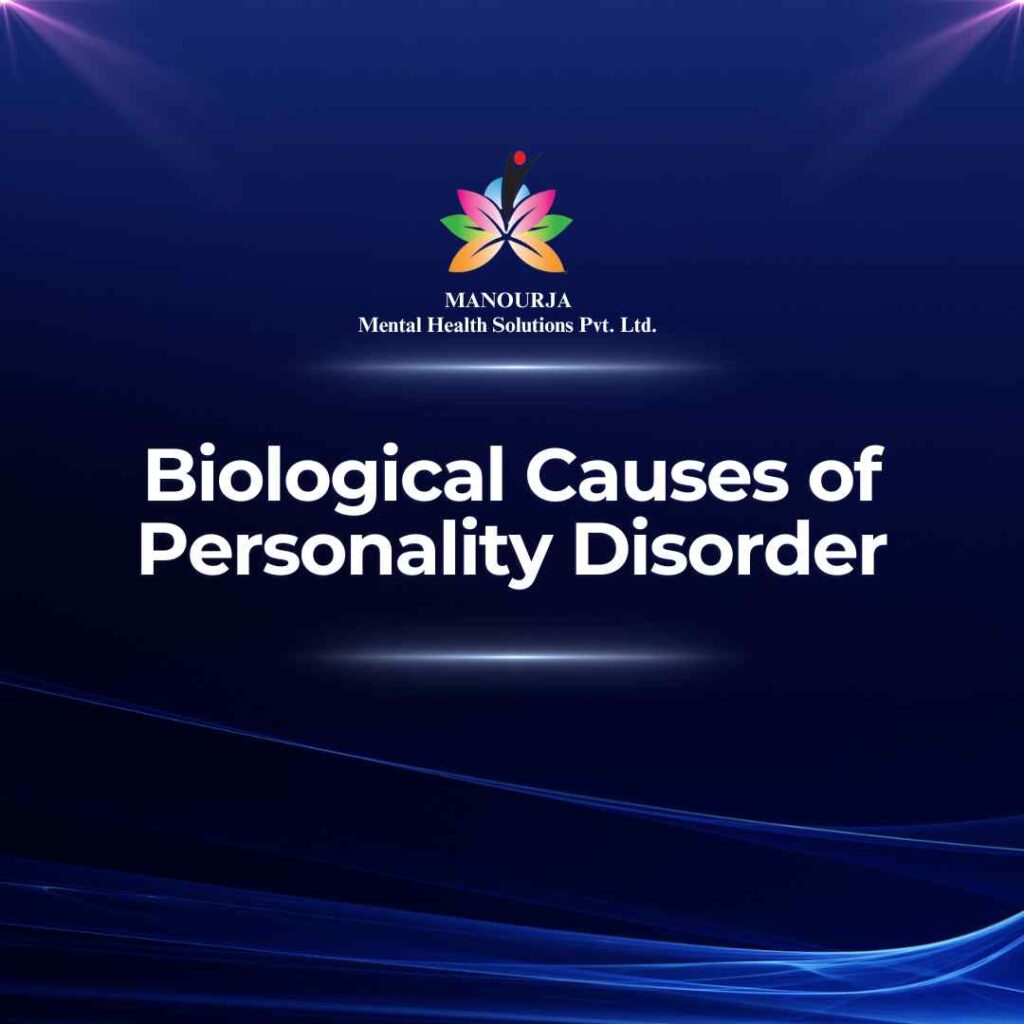Biological Causes of Personality Disorder

The biological causes of personality disorders involve a complex interplay of genetics, neurobiology, and environmental factors. While the exact mechanisms can vary depending on the specific type of personality disorder, several biological components are commonly implicated in the development of these disorders:
Genetic Factors
Research suggests that genetics play a significant role in the development of personality disorders. Family and twin studies have indicated that there is a heritable component to disorders such as borderline personality disorder (BPD), antisocial personality disorder (APD), and others. For example, if one identical twin has a certain personality disorder, the other twin is more likely to have it as well, compared to fraternal twins or other siblings. However, genetics alone does not determine the outcome; it increases the susceptibility, which may be activated by environmental factors.
Neurotransmitter Dysregulation
Neurotransmitters are chemicals in the brain that facilitate communication between neurons. Imbalances or dysfunction in neurotransmitter systems, such as serotonin, dopamine, and norepinephrine, are believed to contribute to the symptoms observed in personality disorders. For example:
- Serotonin: Often associated with mood regulation, serotonin imbalances are linked to impulsivity, aggression, and depression, features commonly seen in borderline and antisocial personality disorders.
- Dopamine: Dysregulation in dopamine pathways can affect reward-seeking behavior and impulsivity, which are pertinent to several personality disorders.
Brain Structure and Function
Abnormalities in brain structure and function have been observed in individuals with certain personality disorders. These abnormalities typically involve areas of the brain that regulate emotion, impulse control, and cognition, such as:
- Prefrontal Cortex: Often found to be less active or smaller in individuals with antisocial and borderline personality disorders, this area is crucial for decision-making, impulse control, and adhering to social norms.
- Amygdala: An increased volume or hyperactivity in the amygdala has been linked to heightened emotional responses seen in borderline personality disorder.
Hormonal Influences
The hormonal systems, especially those involved in stress responses (like the hypothalamic-pituitary-adrenal axis), can influence personality development and the manifestation of personality disorders. Abnormal levels of stress hormones, including cortisol, may be linked to emotional dysregulation and reactivity, key features in many personality disorders.
Autonomic Nervous System Reactivity
Research has also highlighted differences in how the autonomic nervous system (ANS) responds to stress in people with certain personality disorders. For example, individuals with borderline personality disorder might experience heightened sensitivity to stressors, leading to rapid heartbeat, increased sweating, and other physiological stress responses more intensely and more frequently than typically developing individuals.
These biological factors do not act in isolation but interact with environmental influences (such as childhood trauma, parenting style, and social experiences) to impact the development and progression of personality disorders. Understanding these biological underpinnings helps in developing targeted therapies and interventions to manage and treat personality disorders effectively.
At MANOURJA, we believe in the transformative power of counseling. Our experienced therapists offer a safe and supportive space where you can explore your thoughts, emotions, and challenges. Through personalized counselling sessions, we’ll work together to develop coping strategies, build resilience, and achieve lasting positive change. Discover the path to a healthier, happier you with MANOURJA counselling services.
MANOURJA Rehabilitation Services
At MANOURJA, we’re dedicated to helping you in rebuild your life, after difficult times. Our rehabilitation services focus on understanding what you need to move forward, whether you’re recovering from addiction, trauma, or any psychological – social challenges. We create personalized plans, that are all about helping you, regain your strength and find hope again. With a caring team by your side, you’ll have the support to make real progress and take steps toward a brighter, healthier future.
